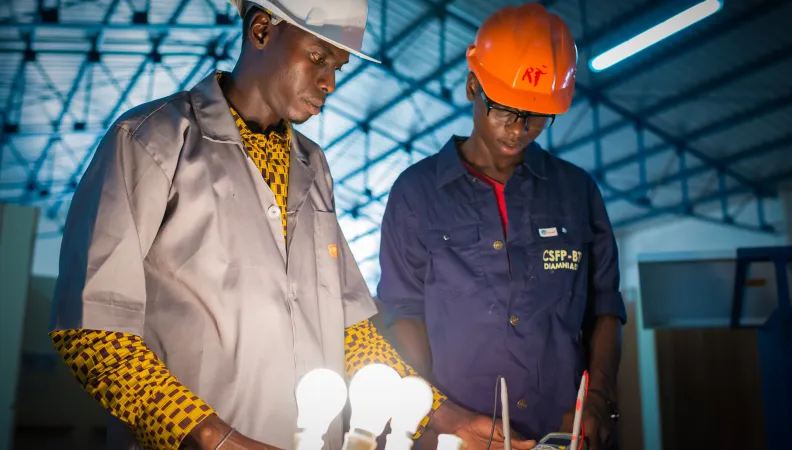Share the page
Supporting Senegal's skills for jobs and competitiveness program
Project


-
Project start date
-
Status
Ongoing
-
Project end date
-
-
Project duration
-
4 ans
-
AFD financing amount
-
12000000 €
-
Country and region
-
Location
-
Dakar
-
Type of financing
-
Partners
-
World Bank
-
Beneficiaries
-
State of Senegal
AFD and the World Bank are supporting the implementation of the Senegalese authorities’ new national vocational training strategy.
Context
In Senegal, training systems fall short of the expectations of both the population and companies. Provision is based on eleven technical high schools and 289 centers (87 public), oriented towards the service sector, with insufficiently trained trainers. The financing system can no doubt be improved.
This situation has an impact on the socio-professional integration of young people: over one in three is unemployed. Conversely, high-potential economic sectors lack skilled labor. In this context, in 2001, Senegal’s public authorities set out to implement major reforms, with a focus on developing learning and strengthening public-private partnerships in order to build a training provision to match the labor market. Their objective is to support the creation of 300,000 jobs by 2020 in priority sectors for the country. The Skills for Jobs and Competitiveness Program (FPEC) supports this objective.
Description
The Skills for Jobs and Competitiveness Program focuses on three main objectives:
- Improve the quality of training provision by upgrading technical high schools, networking training centers in three economic sectors and setting up short-term training courses.
- Overhaul the vocational training financing system and create a single fund to transfer resources to centers, highs schools, companies and individuals. This fund will optimize resources.
- Improve the management system. This program, by building the capacities of the ministry’s services for all its mandates, will support the monitoring-evaluation of training activities, with a strong focus on issues related to equal access for girls and women.
This program will contribute to the recognition of the principles tested with AFD’s support, such as the autonomy of institutions and public-private partnerships. By focusing on the gender issue, it will also help build the skills of girls and women and their representation in the governance bodies of institutions.
Impacts
- Capacity: 15,000 people in vocational training.
- Sectors: poultry farming, horticulture and tourism, as well as specialized certification in 10 professional activities.
- Qualifications will range from CAP to BTS.


